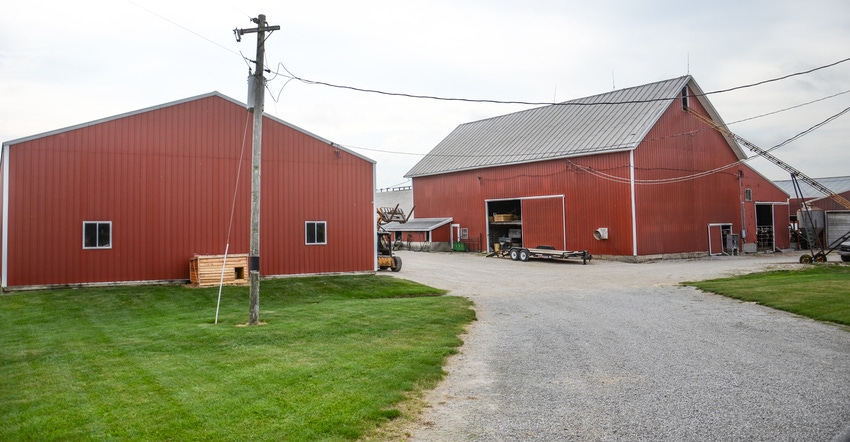July 13, 2018

By Howard Doster
“What farm-related stuff has changed most in your lifetime?” That’s the last question Jim Mintert, Purdue University agricultural economist, asked each new Indiana Master Farmer during the awards banquet in Franklin, held during the 86th annual Indiana Farm Management Tour. I used to coordinate the tour, before I retired.
If I were asked that question, my first answers would be: a shift away from horses, elimination of a cow and chickens on every farm, electricity and not coal oil lights, no more hand-pumping of water, an indoor toilet, and site-specific farming. (I created the latter term in a 1983 Purdue Proceedings Paper, and it stuck.)
Then, it hit me. I grew up on a rented farm in Ohio, in a house with a log foundation and a path, not a bath. Dad grew up in that house. He went to the one-room Hickoryville School, where I would have started if I had been nine years older. Instead, I went to a consolidated school and graduated in a class of eight.
I didn’t know we had no money. No one had money. I was embarrassed by that only once. The week after 4-H camp, my girlfriend there got her older cousin to bring her to my Sunday baseball game. I invited her home. When she asked for the bathroom, Mom showed her the path. I never saw her again.
In March of my senior year, I enrolled as a freshman at Ohio State University, the only one of my class to go to college.
The baseball coach made me a pinch runner. He had me steal second base. On my sixth attempt, I broke my left ankle, ending my chances to go south for spring training.
Then I cut off two finger tips in a hay mower accident. That ended my farming career. Two days later, I was a summer Extension county agent intern, and I mostly stayed in Extension.
Today’s farm kids
Mintert told me he still gets lots of students, often from part-time farms, who are the first family member attending college. When I taught the Purdue senior farm management class, I realized my students weren’t hicks. They were becoming well-prepared to manage large farm businesses.
Thanks partly to land prices, many of their parents had a large net worth. Today, many farmers’ kids are among the most affluent students at Purdue. Over a generation ago, my wife and I suggested, without effect, that our kids date farmers’ kids.
Before you write nasty emails, let me say not every student has affluent parents or a farming career waiting at home. There are still many students from farms where hard work and diversification have kept the farm going but haven’t resulted in huge net worth. That’s OK — that’s the independence of farming. But be assured that virtually no one in farm country still uses a path, not a bath!
I’ll leave you with this. During a workshop for senior farm management students, I went to supper with a dad who farmed 600 acres and his son, who was disturbed his ex-girlfriend was also at the workshop with her new boyfriend, whose dad farmed 2,000 acres.
What the young lady didn’t know was that the 2,000-acre farmer had heavy debt and five children. The 600-acre dad had little debt and one child. She chased the wrong son! Looks can be deceiving even today.
Doster is a retired Purdue ag economist and Honorary Master Farmer.
You May Also Like




